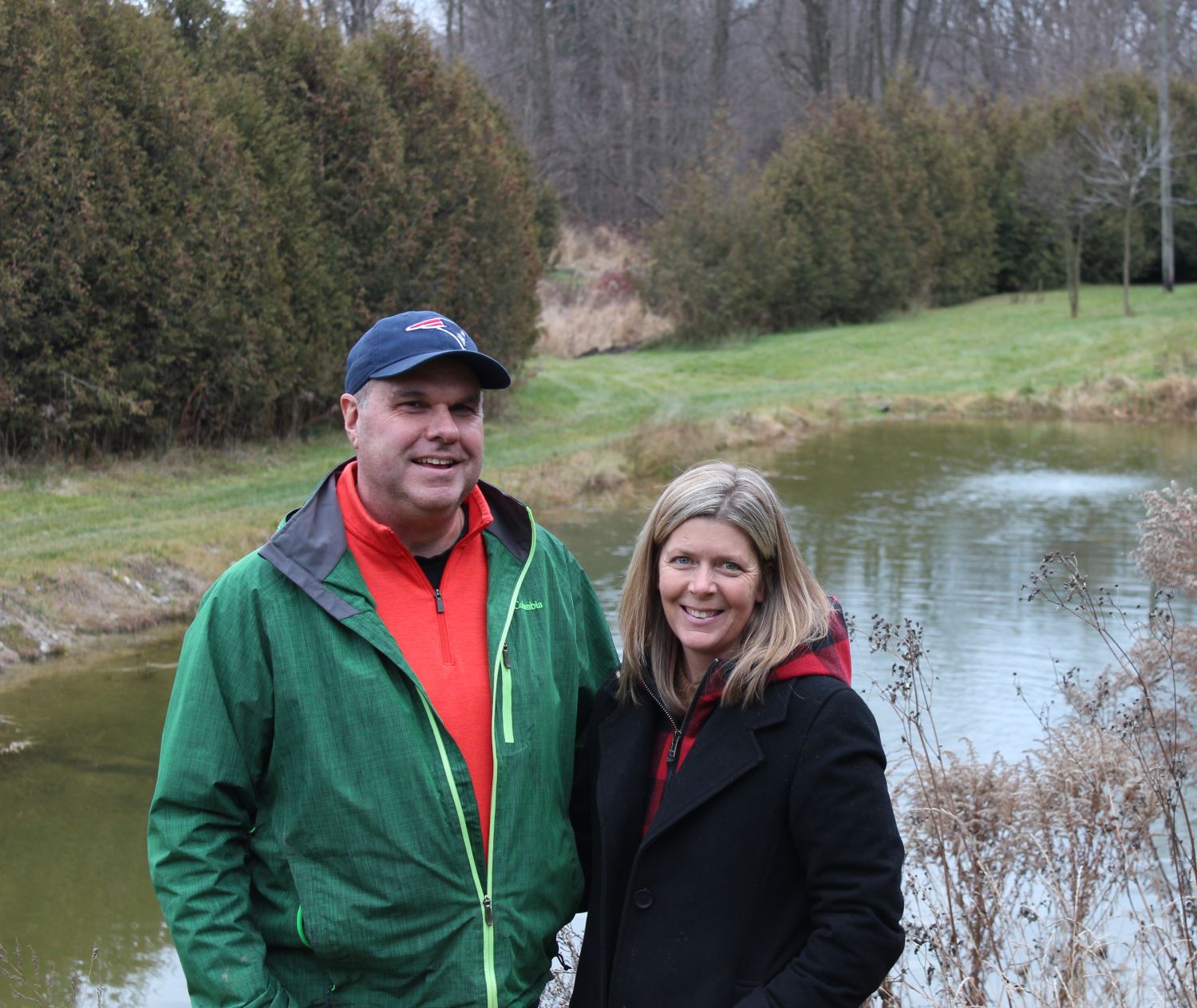Oxford Stewardship Award nominees Greg and Marsha Litt
Greg and Marsha Litt – Building a wetland
Marsha and Greg Litt didn't waste time rolling up their sleeves and getting to work after purchasing their 60-acre property near Ingersoll three and a half years ago.

First on the list was removing some dead American cranberry bushes to make room for a small shallow wetland in a low-lying wet area of their property. The couple then started working with the Upper Thames Conservation Authority to help with grants and the approval process to establish a new wetland. Greg says they made sure not to waste the soil they were digging.
“Thankfully, we could repurpose all the soil. It was trucked to a neighbour across the road to help them fill in an area on their property."
The couple was lucky to find the natural spring during the dig and are hopeful that means the pond will never dry out. Mature Cedar trees planted by Marsha's father (the previous property owner) in the early 2000s serve as a beautiful backdrop to the new wetland. The wetland adds to the treed buffer which helps to protect the nearby watercourse during high-flow events. Plans are already in place to add shrubs and aquatic vegetation around the wetland.
Marsha says they wanted to be good stewards of the land and attract more wildlife.
“I think it is important to take care of the environment we live in and keep it clean. Our goal is to attract more wildlife to our property and have a nice clean living environment for our family.”
She adds they have noticed wildlife enjoying the pond.
“We had a crane that comes in and visits the pond every day in the summer months. I have noticed a couple of ducks floating around and lots of frogs; in the spring, you can hear them down here croaking all night long.”
The couple has also been busy planting over 2000 trees on the property and Greg says they planted 44 acres of oat and radish cover crops following winter wheat.
“We did a cover crop last year in the winter, which was more natural, so there was less erosion, wind erosion, water erosion.”
This is part of their long-term plan to reduce erosion, limit tillage, and improve the overall soil health of the farm. The remaining acres in their operation were in hay. Having achieved more than 60 per cent residue cover, they received cost-share federal funding for their cover crop.
Marsha says they’re looking forward to next summer.
“It is time to enjoy it. We have been going non-stop since we moved here. It’s time to sit and relax a bit.”
The couple has a couple of picnic tables and a cozy firepit near the pond that they hope will serve for some memorable family gatherings this summer.
